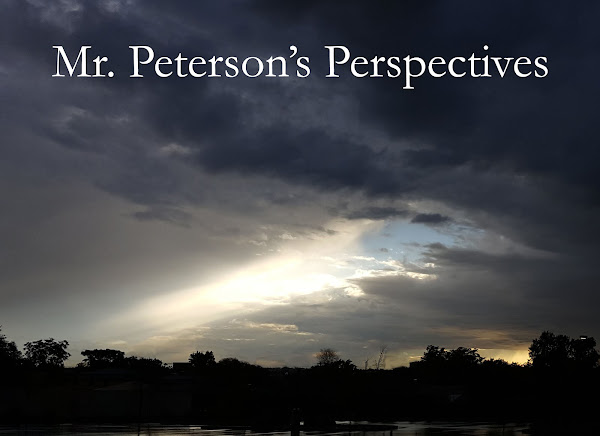I received a call today asking that I post an update on what is going on with the immigration issue. Before I start, let me say that there were various issues and aspects of immigration that were trying to be addressed in legislation this year. The House had several bills from various representatives and the Senate had a couple bills from several different Senators. Here is a rundown on each bill and its current status:
SB 60 - This is the bill that Luz Robles (D) sponsored in the Senate and I signed on as the Republican house sponsor. This was a very smart and well thought out piece of legislation that I believe trumps any other "guest worker permit" legislation that has been presented. However, due to the minority status (politically speaking...eh hem) of the sponsor, the Senate opted to delay and defer on the bill and then put it in a state of suspended animation (what we call being "circled") on the Senate side. As of this post, SB 60 is sitting "circled" on the Senate floor and will in all likelihood die there as the General Session concludes on Thursday.
HB 116 - This is the bill that we passed out of the House last week as a "Guest Worker" bill. It was the skeletal
framework of SB 60 but without all the details fleshed out. That is the form in which we passed it out of the House. When it arrived in the Senate it underwent major surgery and other big parts were attached to the bill. For some reason, visions of Frankenstein come to mind, anyway, it came back with all the new parts. That is the bill we debated last night on the floor. The mood on the debate floor last night felt like being at a funeral, or worse, an execution, but despite that mood HB116 was ultimately passed 41-32. You can listen to the melancholy banter
HERE. You can
READ THE BILL AS IT PASSED HERE. You can notice the differences between the original and how it came back from the Senate. Here is the final vote on the House Floor that sent it to the Governor for a signature.
SB 288 - At the start of the session, when the immigration debate started rolling forward, a specific Senator felt compelled to bring all the parties together and synthesize an "Omnibus" or Mish-Mash bill comprising all the parts of everyone's different legislation. This work group fell apart very early in the session. Since all the parties left the table, the author of the bill "borrowed" language from everyone's different bills and assembled it into SB 288. This SB288 was then mostly copied and pasted into HB116 which we passed last night. So, it is likely that SB 288 will die in the Senate at the end of the General Session.
HB 70 - This was the Heavy Law Enforcement Arizona Like Bill. This bill was then watered down, diluted some more, then watered down again for passage out of the House. However, the rhetoric and and stigma about the bill persisted so the Senate killed it in a committee hearing on Wednesday.
HB 497 - In exchange for letting his HB70 die peacefully, the sponsor of HB70 was allowed to open a new bill and copy the language of HB70 into it except with one final round of watering down of language. HB 497 is THE "I'M NOT AN ARIZONA BILL I AM A UTAH SOLUTION" BILL. This bill passed out of our House yesterday and passed out of the Senate as well but was only released by the Senate when they saw that we had successfully passed out HB116 at 9:45pm last night. That was the deal. You can read more on that in the
SLTrib. This bill is now on its way to the governor for a signature.
HB 253 - This was an E-verify bill that had some components inserted into HB 116. HB 253 was passed out of the House but will likely die in the Senate.
HB 191 - This was a bill that started out revoking in-state tuition waivers but was then modified to allow it except for certain conditions. The bill passed the House but will likely die in the Senate. Provisions of the bill were inserted into HB116 which passed the House.
HB 466 - Finally this was a Migrant Worker bill that allowed for Utah to partner with the Mexican state of Nuevo Leon to look at bringing workers from that state to Utah to work. This was a team effort on the part of the House and Senate. It has passed both bodies and is on it's way to the governor for a signature.
HB 469 - This is a very interesting "blast from the past" bill presented by a libertarian leaning representative in the House. It basically provides for individuals in Utah to "sponsor" individuals to come here to go to school or to work. I have heard some folks coyly describe it as an Indentured Servitude bill. The real question is how it will jive with the rest of the legislation that has already been passed. This bill is sitting in the Senate. Lets keep an eye on where it goes.
With HB116, HB466, and HB 497, the full spectrum of immigration issues should be addressed. The question now is how effective will they be. I anticipate they will be signed into law and we can begin watching to see how they perform. We should start to see fruit from these bills in about 6 months with the broader impact coming in about 24 months.
















